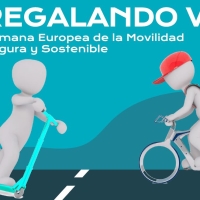
ErikaWittlieb
ACCIDENTS ABROAD: WHAT TO DO?
Despite driving carefully, accidents can happen when we are on vacation, which makes it even more complicated. At P(A)T we want to help you in those moments.
Vacations and trips go hand in hand and that means, sometimes, driving on unknown roads and immersing yourself in a way of driving with unwritten rules specific to each place. For this reason, despite driving carefully, accidents can occur when we are on vacation. The fact that it happens far from home makes it even more complicated, so we want to give you some advice.
What documentation must be taken into account before traveling?
If you travel to any country in the European Union, we recommend you travel with the European health card (you can request it at this link), to ensure health care abroad, in the event of a mishap.
In addition, prior to the trip, check what your insurance policy is to see what health care coverage outside and within the EU you have and, if necessary, obtain travel insurance that can cover the costs of transfer to the most appropriate hospital or even early return home in case of hospitalization.
Keep in mind that if you travel to a country outside the EU and states that are not members of the Multilateral Guarantee Agreement, you should have an International Driving Permit, which can be requested through the General Directorate of Traffic (you can request it at this link).
Also, keep in mind that you must have the International Certificate of Insurance or Green Card together with the vehicle insurance. The Green Card is the document that guarantees that a vehicle originates from a country that is a member of the Multilateral Guarantee Agreement, which ensures the mandatory coverage of the country in which you are, and certifies the Civil Liability insurance (more information about the Certificate and how to get it in this link).
What to do in case of a traffic accident abroad?
The first thing you have to remember is the RULE: PROTECT, NOTIFY AND HELP in this order to avoid greater evils.
You must PROTECT the area according to road safety regulations: turn off the vehicle, remove the keys, put on the hazard lights. Put on the reflective vest inside the car and exit with great caution, whenever possible on the side where there are no vehicles circulating. Mark the area with reflective triangles or the V16 light. Check for injuries, and do not move potential victims unless there is a higher risk of cause.
NOTIFY: Call the emergency number and the corresponding authorities in the country. Remember that in Europe the emergency number is 112 and that you will be attended to in the official languages of the European Community. It provides service 24 hours a day, 365 days a year.
And HELP, if you do not have basic knowledge of lifeguarding or first aid, wait for the emergency services to arrive. Above all, it is important not to remove the helmet, not to give food, drink or medicine and not to move or make any maneuvers so as not to aggravate any injuries that may occur. We can help by staying close to the injured person and trying to calm them down.
These same rules apply in the event of witnessing a traffic accident, even if we are not involved.
In the event of an accident abroad, as would happen here, it is important to collect the data and write up the European Accident Report and inform your insurance company so that it can advise you on medical assistance or vehicle repair costs. In the event that it is not possible for you to fill it out (either because of the language or other reasons), the competent authority should offer you assistance in this regard. If you or someone traveling with you has been injured, you should go to the hospital and ask for a medical report to show it to the insurer later.
If you have traveled outside the European Union, it is advisable to go to the Spanish Embassy, in addition to contacting your insurer, as they will advise you on the legislation of the country to continue with the accident claim.
Once in Spain you can make the claim judicially or directly to the responsible insurer.
If you decide to take legal action to resolve the conflict, it is important to know that the general rule both in international law and in Spanish law says that the Courts of the place of the accident will be competent. However, there are exceptions that, for example, would make the law of the state of registration of the vehicle or the law of the state of residence of those involved applicable.
Remember that if there is no answer to the claim within three months, you can go to Ofesauto, the Spanish Office of Automobile Insurers (more information).
However, each case has many peculiarities, so if you have any doubts about your particular case, do not hesitate to contact us by calling (+34) 93 301 37 78 or mobile (+34) 630 02 03 92 from Monday to Friday from 10 a.m. to 2 p.m., or to the email comunicacion@pat-apat.org and we will answer your questions.
In addition, P(A)T is a member of the Federation European Union of Road Victims (FEVR), and therefore, we can make contact with other entities that are dedicated to mobility and care for victims in other European countries.
Travel safely!











